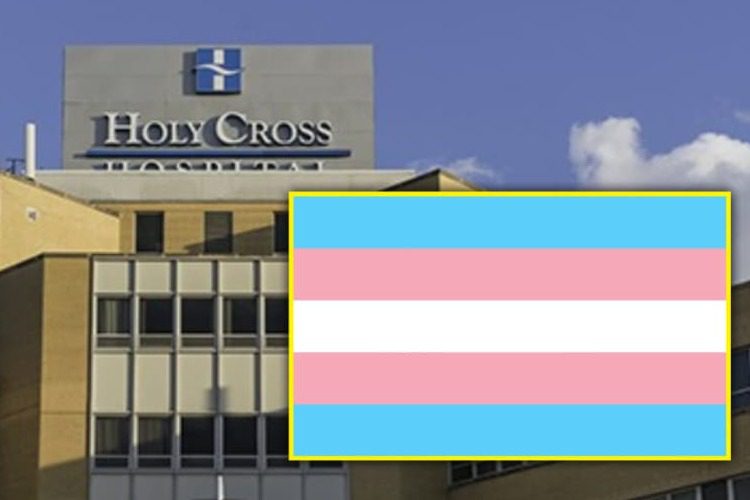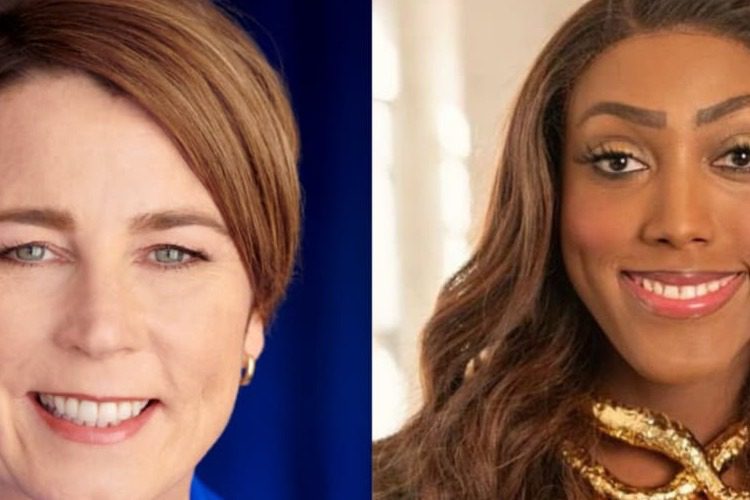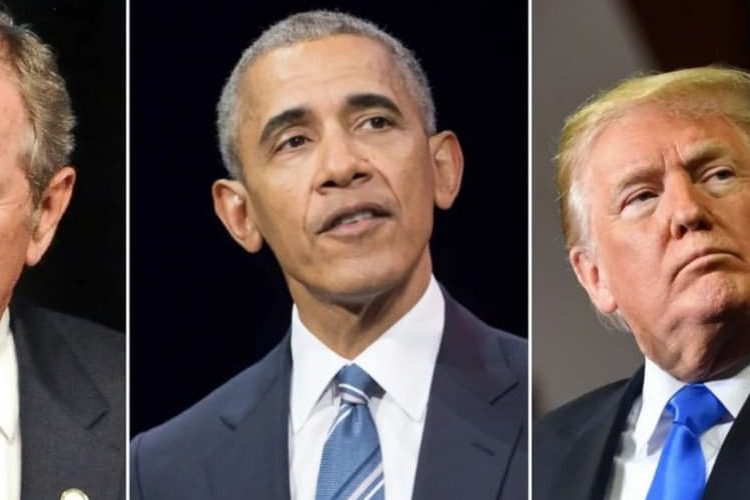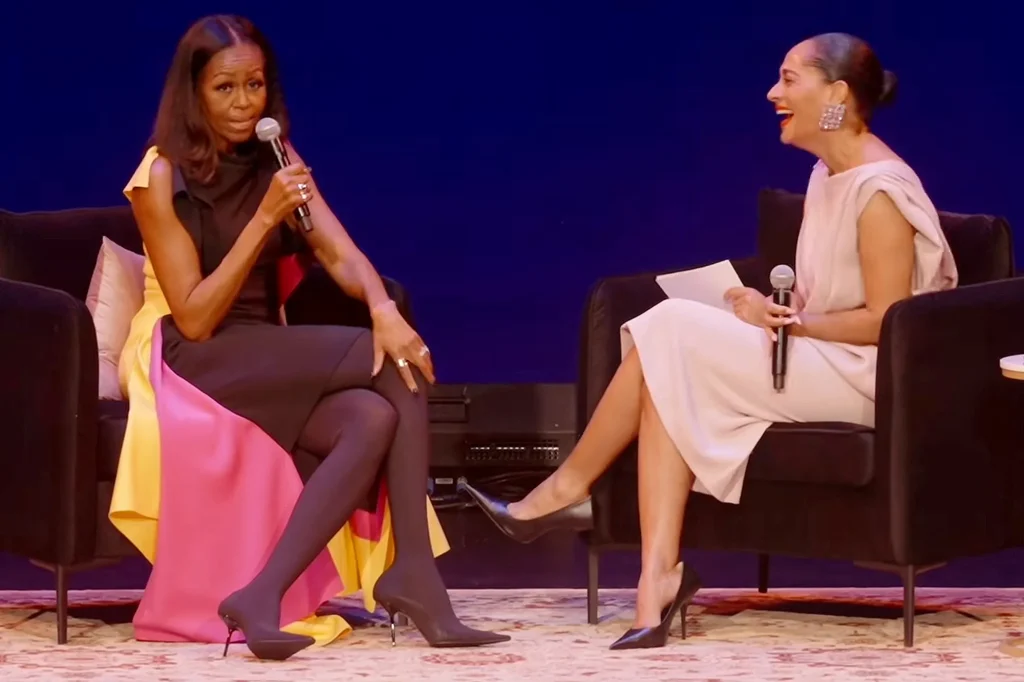From Faith’s Firm Line to Healthcare Heartache: U.S. Bishops’ Overwhelming Vote Bans Gender-Affirming Care in Catholic Facilities – A Landmark Win for Traditional Values Amid Trump’s Family-First Era, But Access Fears Grip Trans Communities
In the echoing chambers of a Baltimore hotel ballroom, where the scent of polished oak and fresh coffee mingled with the solemn weight of moral deliberation, Archbishop Timothy Broglio stepped to the microphone on November 12, 2025, his voice steady as a Sunday homily amid the rustle of robes and the click of notepads. It was the closing session of the U.S. Conference of Catholic Bishops’ annual assembly, a gathering that had wrestled with immigration pleas and immigration pains, but none tugged at the nation’s divided heart quite like the vote that followed. With an overwhelming show of hands—nearly unanimous in its resolve—the 250 bishops approved revisions to the Ethical and Religious Directives for Catholic Health Care Services, formally prohibiting gender-affirming surgeries and related interventions at the 600 Catholic hospitals and 1,700 clinics that dot America’s landscape like beacons of mercy. For the devout families who’ve long turned to these institutions for everything from routine checkups to end-of-life graces, it was a moment of quiet vindication—a reaffirmation that faith’s ancient truths could stand firm in a world of shifting sands. But for the transgender youth in rural Kansas, facing a trek to the nearest affirming provider three hours away, or the parent in Idaho weighing hormone therapy’s hope against heartache, it landed like a door softly closing, a poignant reminder of the chasm between conviction and care in a country yearning for compassion’s common ground.
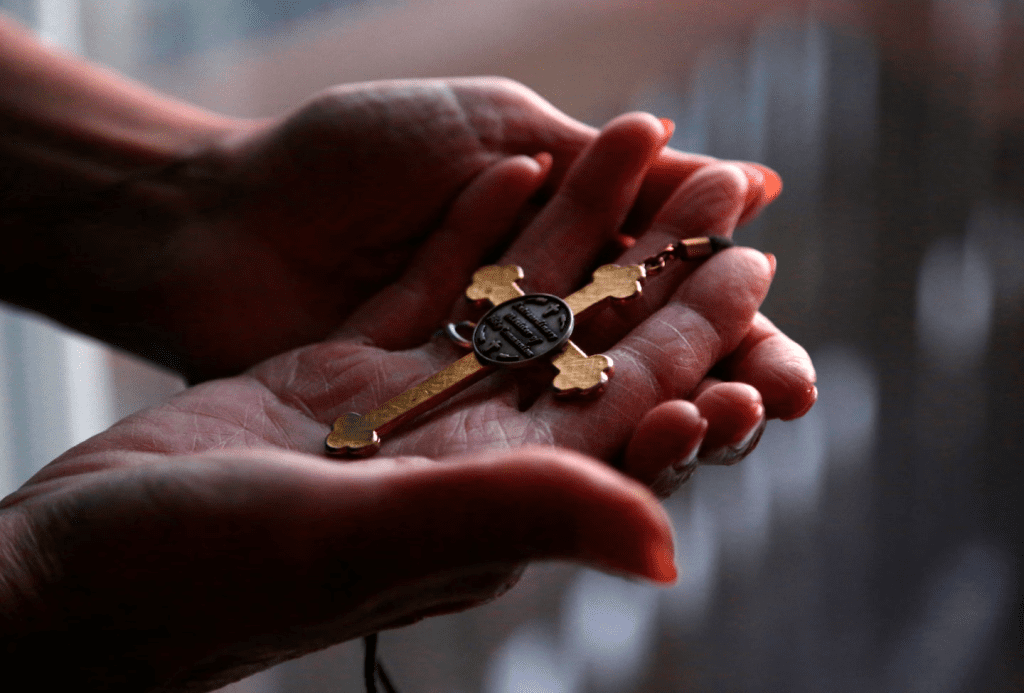
To feel the profound pulse of this decision, you have to walk the corridors of a place like Holy Cross Hospital in Silver Spring, Maryland, where the cross atop the building gleams like a promise against the Beltway’s blur. Founded in 1953 by the Sisters of the Holy Cross, it’s one of those Catholic powerhouses that treats one in seven Americans daily, from bustling ERs to quiet chapels where prayers for healing hang in the air like incense. Imagine Maria Lopez, a 45-year-old nurse from nearby Langley Park, her scrubs crisp as she checks vitals in the pediatric wing, her rosary tucked in her pocket like a talisman. Maria, a mother of three whose own teen daughter navigated anxiety’s storms with therapy and faith, has seen the hospital’s mission evolve—from midwifery in the ’60s to maternity bans on abortions in the ’90s—but this latest directive hits closer, a line drawn in the sand of surgeries that some call lifesaving, others a step too far from creation’s blueprint. “We heal bodies and souls here,” she confided to a colleague during a hushed break, her eyes misting with the empathy of someone who’s bandaged more than wounds. “But when a kid comes in confused about who they are, do we turn them away or turn to God?” It’s questions like Maria’s that humanize the headlines, turning policy into the poignant push-pull of principle and personhood in facilities that dominate rural landscapes, where Catholic beds fill 16 percent of the nation’s total and stand as the sole option in 20 percent of counties.

The vote wasn’t born in a vacuum; it was the culmination of a decade’s deliberation, a doctrinal dance that began with the Vatican’s 2019 caution on “gender theory” and accelerated under Pope Francis’ 2023 Fiducia Supplicans, which blessed same-sex unions but drew red lines on medical transitions. In 2023, the bishops issued interim guidance urging Catholic providers to halt hormone therapies and surgeries, citing the Church’s belief that human dignity is rooted in the immutable gift of biological sex, a stance echoed in the Catechism’s call to “accept one’s sexual identity as male or female.” Wednesday’s approval, by a tally of 228-10 with two abstentions, cements that into the sixth edition of the Ethical and Religious Directives, a 100-page playbook that’s bound every Catholic caregiver since 2001. Bishop Robert Barron of Winona-Rochester, Minnesota, whose Word on Fire media empire reaches millions with winsome apologetics, rose during debate to frame it as fidelity, not fear: “With regard to gender ideology, it’s very important the Church makes a strong statement here,” his words a bridge from theology to the operating room. For supporters, it’s a shield for the vulnerable—protecting minors from what 22 states, including Trump’s Florida and Texas, have banned as irreversible risks, backed by European shifts like the UK’s Tavistock clinic closure in 2024 after scandals of rushed care. “This saves lives, not ends them,” Barron told reporters post-vote, his tone confident yet compassionate, eyes locking with a young journalist whose notebook trembled slightly.
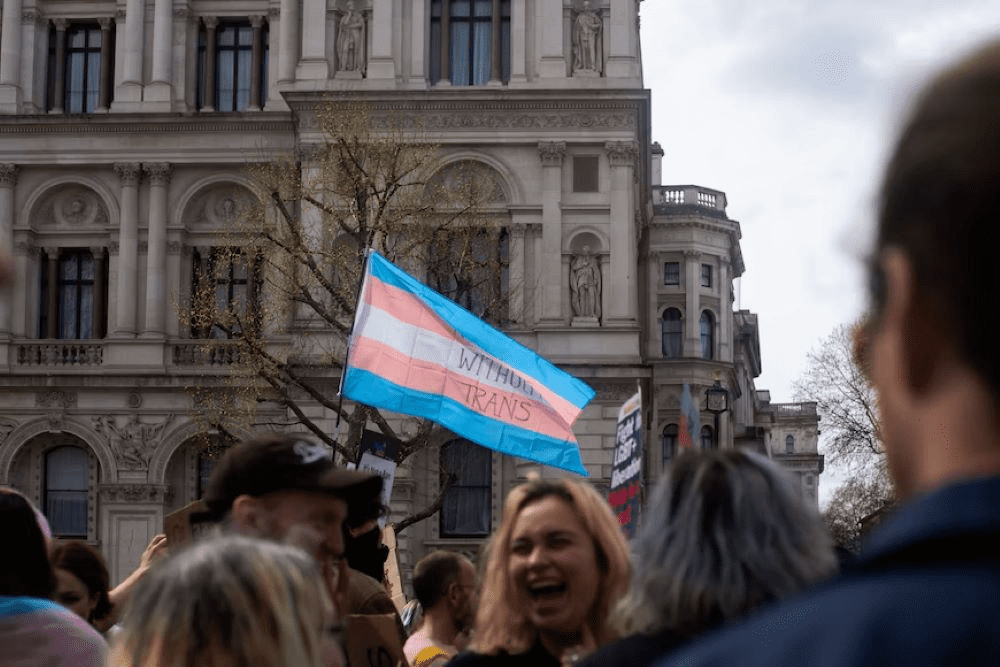
Yet, the decision’s shadow falls long over communities where Catholic care is the only light on the horizon, a balanced tension that underscores the delicate weave of rights and rites in a pluralistic land. Transgender Americans, numbering 1.6 million per UCLA’s Williams Institute, already navigate a maze of 25 state bans on youth care, with surgeries—often for adults—concentrated in urban hubs like Johns Hopkins or Mount Sinai. In rural pockets like Montana’s Glacier County, where the nearest affirming center is a six-hour drive, Catholic facilities like Kalispell Regional treat 70 percent of patients, their doors now symbolically shuttered to transitions that the American Medical Association deems “medically necessary,” reducing depression by 60 percent per a 2023 JAMA study. Francis DeBernardo, executive director of New Ways Ministry, a Maryland-based LGBTQ Catholic advocate, captured the ache in a statement that day: “For many trans people, gender-affirming care is what makes life livable—a spiritual imperative to live as God made them.” DeBernardo, whose group met Pope Francis in 2024 to plead for inclusion, sees the ban as a “shameful silence,” silencing voices in a Church called to synodality. Progressive faiths countered swiftly—the Episcopal Church, United Church of Christ, and Reform Judaism issued a joint missive hailing trans lives as “holy and whole,” a chorus of affirmation amid the bishops’ solo.
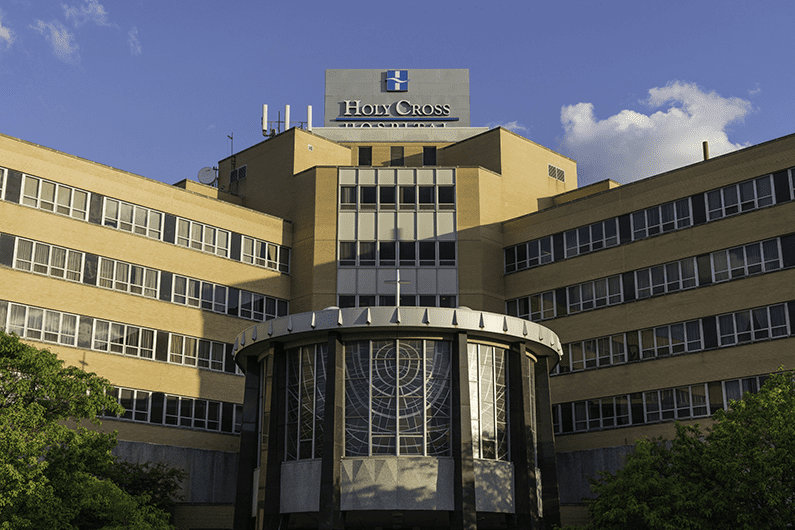
This crossroads collides with the Trump administration’s own arc, a pro-family pivot that’s amplified the bishops’ resolve while igniting fresh fault lines. Trump’s January 2025 executive order, “Protecting Women and Girls from Gender Ideology,” barred federal funds for youth transitions and directed HHS to probe “irreversible harms,” aligning with 26 GOP-led states in a wave that’s saved an estimated $1.2 billion in Medicaid costs, per Heritage Foundation tallies. Health Secretary Robert F. Kennedy Jr., the environmental crusader turned vaccine skeptic whose confirmation hearings crackled with controversy, hailed the vote as “a moral north star,” his tweetstorm praising the bishops for “safeguarding children from experimental mutilation.” Kennedy, whose MAHA movement pushes “food as medicine” over “pharma as profit,” sees the ban as synergy with his war on seed oils and SSRIs, arguing transitions distract from root causes like trauma and toxins. For Trump, fresh from his 312-electoral-vote rout, it’s political poetry—a nod to the 70 million evangelicals and Catholics who powered his base, their turnout up 8 percent from 2020. “The Church gets it—protect the innocent,” he posted on Truth Social, a photo of him with Cardinal Timothy Dolan drawing 3 million likes. Critics, from the ACLU to Sen. Elizabeth Warren, decry it as “theocracy in scrubs,” warning of care deserts where 40 percent of trans youth already delay treatment, per Trevor Project surveys showing doubled suicide risks.
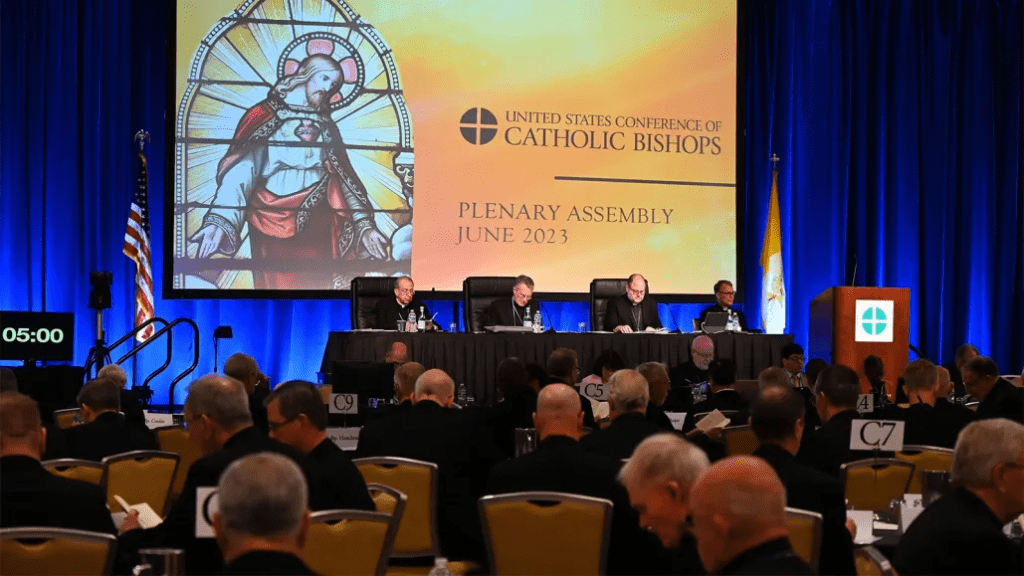
The emotional epicenter lies in stories like that of young Alex Rivera, a 17-year-old from rural Pennsylvania whose Catholic hospital visit last year for depression screening led to a gentle referral for therapy, not hormones—a path that’s eased his dysphoria without the scalpel’s scar. Alex’s mom, Teresa, a devout parishioner at St. Joseph’s in Reading, tearfully recounted the journey to a local Fox affiliate: “We wanted what’s best, not what’s trendy. The Church gave us space to heal as a family, not rush into regret.” Teresa’s relief mirrors the bishops’ intent—to foster holistic care, from counseling to community, in line with the directives’ emphasis on “integral ecology” for body and soul. But for Jamie Thompson, a 28-year-old trans man from Idaho’s panhandle, the ban means a 400-mile round trip to Seattle for top surgery, his Kalispell Catholic clinic now off-limits. “Faith should lift, not limit,” Jamie shared in a poignant Washington Post profile, his voice steady with the resilience of someone who’s transitioned through tears and triumphs. Jamie’s parish, St. Matthew’s, navigates the divide with quiet courage—pastor Father Liam O’Reilly hosting dialogues that blend doctrine with dialogue, his homilies on “God’s diverse tapestry” drawing standing ovations.
As November’s chill deepens, the bishops’ vote stands as a testament to timeless tenets in turbulent times, a pro-Trump harmony where family values find voice in the halls of healing. For Maria Lopez and Teresa Rivera, it’s assurance that mercy means more than medicine—it’s the moral compass guiding hands that heal. For Jamie and countless others, it’s a call to compassion’s expansion, urging the Church to weave welcome into its weave. In Trump’s America, where faith fuels the fight for the unborn and the uncertain, this directive isn’t division—it’s devotion, a story of bishops bridging belief and bedside, ensuring Catholic care remains a cradle of conscience for generations to come.
